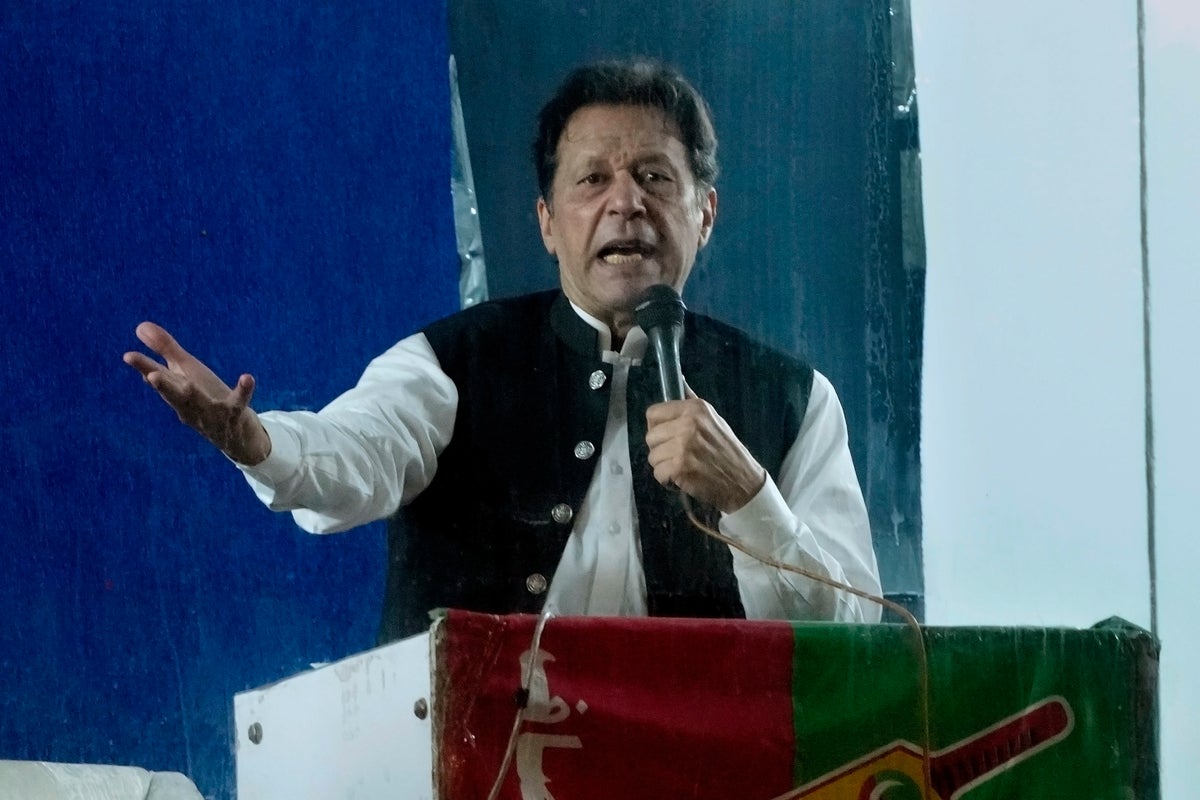
Former Pakistani Prime Minister Imran Khan led a rally in the eastern city of Lahore in the early hours of Sunday, setting out his ideas to revive the country’s spiraling economy and accusing the government of lacking a rescue plan.
The International Monetary Fund has delayed a $6 billion bailout over Pakistan’s failure to meet the terms of a 2019 deal. The government blames that failure on Khan, now the opposition leader.
Khan spoke to thousands of party supporters on a damp night in Lahore from a bulletproof box perched atop a shipping container. In his address, at the Minar-e-Pakistan landmark, the former cricketer railed against the government and challenged it to come forward with a rescue plan to bring the country out of its many economic difficulties.
“We need surgery to correct the governance system of this country, for which ensuring rule of law is a must,” he said. “To reduce the current account deficit, we have to encourage our overseas Pakistanis to invest in the country.”
Khan’s plan focuses on boosting revenue through foreign exchange and investment, widening the tax network, and anti-money laundering initiatives.
He also outlined steps to promote agriculture, tourism, a housing finance scheme, a health card program, and small- and medium-sized industries.
Khan said direct foreign investments from Pakistanis overseas would help the country to avoid going cap in hand to the IMF for help. He told the crowds, who waited hours to hear him speak, that the net worth of 18,000 Pakistani-Americans in the US is $200 billion and the net worth of the top 10 Pakistani-American businessmen is $25 billion. “And (still) we are bowing before the IMF to get a $6 billion deal.”
He said the main problems plaguing Pakistan’s economy are foreign debt, a current account deficit, reduced exports, pressure on the rupee and tax evasion.
Local authorities warned Khan not to hold a public rally in view of a possible terrorist attack. The security alert said militants from a banned outfit had reached Lahore and could target the public gathering or the security personnel deployed there.
The 70-year-old politician, who was ousted as prime minister in a no-confidence motion last April and is campaigning for early elections, blames the government for being part of a “regime change operation” against him. The government denies the allegation.
Prime Minister Shahbaz Sharif is struggling to maintain economic and political stability amid dwindling foreign exchange reserves and the aftermath of last summer’s record-breaking floods, which killed 1,739 people and destroyed millions of homes. The floods caused more than $30 billion in damages. He is also dealing with militant violence, which has increased since November when the Pakistani Taliban ended a cease-fire with government forces.







